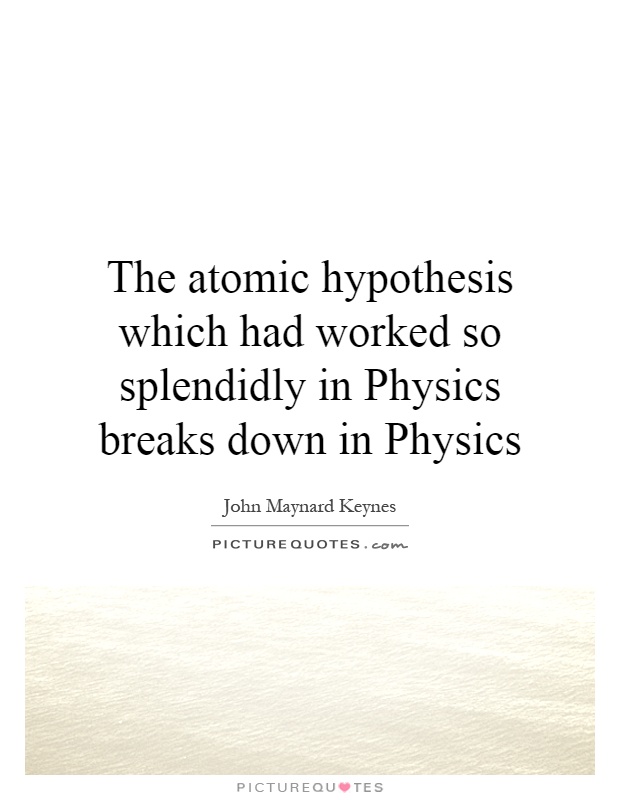The atomic hypothesis which had worked so splendidly in Physics breaks down in Physics

The atomic hypothesis which had worked so splendidly in Physics breaks down in Physics
John Maynard Keynes, the renowned economist, was a firm believer in the power of scientific reasoning and empirical evidence in shaping economic theories. However, he also recognized the limitations of applying principles from one scientific discipline to another without considering the unique characteristics of each field. This is evident in his statement, "The atomic hypothesis which had worked so splendidly in Physics breaks down in Economics."Keynes was referring to the idea that the reductionist approach used in physics, where complex systems are broken down into their smallest components to understand their behavior, cannot be directly applied to economics. In physics, the behavior of atoms and molecules can be accurately predicted based on well-established laws and principles. However, in economics, human behavior is influenced by a multitude of factors that are difficult to quantify and predict with the same level of precision.
One of the key differences between physics and economics is the role of human psychology in shaping economic outcomes. While physical systems operate according to fixed laws of nature, human behavior is often irrational and unpredictable. This makes it challenging to apply the same deterministic approach used in physics to economic phenomena.
Keynes also recognized the importance of uncertainty in economic decision-making, which further complicates the application of atomic hypotheses in economics. In physics, uncertainty can be minimized through precise measurements and calculations. In economics, however, uncertainty is inherent in human decision-making and can have a significant impact on economic outcomes.
Overall, Keynes' statement highlights the need for economists to approach their discipline with a unique set of tools and methodologies that take into account the complexities of human behavior and the inherent uncertainty of economic systems. By recognizing the limitations of applying principles from one scientific discipline to another, economists can develop more robust and accurate theories that better reflect the realities of the economic world.












 Friendship Quotes
Friendship Quotes Love Quotes
Love Quotes Life Quotes
Life Quotes Funny Quotes
Funny Quotes Motivational Quotes
Motivational Quotes Inspirational Quotes
Inspirational Quotes